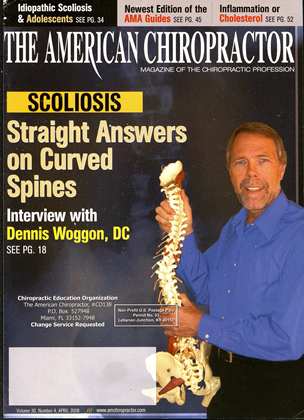The "Father" of Applied Kinesiology, George J. Goodheart, DC, died peacefully at the age of 89 on the evening of March 5, 2008, at his home. Dr. Goodheart was the Founder and Developer of Applied Kinesiology and taught many of us the core principles we use in our practices. Through his remarkable observation skills and analytical mind, Dr Goodheart found that normal and abnormal body function could be evaluated using muscle tests. Any of us that use muscle testing, owe a huge debt to Dr. Goodheart. A 1939 graduate of National College of Chiropractic, Dr. Goodheart was in active practice for over sixty years in Detroit and Grosse Pointe, Michigan. He authored numerous articles and books on Chiropractic Technique for greater than four decades. His distinguished career includes such highlights as Director of the National Chiropractic Mutual Insur- ance Company, Research Director for the ICAK-USA, and being the first Doctor of Chiropractic appointed to the U.S. Olympic Sports Medicine Committee for the 1980 Lake Placid Games. A second generation chiropractor, Dr. Goodheart lectured and taught at each of the chiropractic colleges in the United States, as well as colleges in Canada, Ja- pan, Australia and Europe. Dr. Goodheart discussed the influence of his father and his early days of practice prior to the discovery of muscle testing as the diagnostic entity we know of today. He also covered a potpourri of clinical observations from throughout his career, including his experiences in the obstetric and orthopedic surgical theaters. He was a regular contributor to chiropractic trade journals, a charter member and elected delegate for the state of Michigan to the American Chiropractic Association, and a Fellow of the International College of Chiropractic. He received numerous awards for his chiropractic research, including Certificates of Merit from Logan and Palmer Colleges of Chiropractic. ■
 View Full Issue
View Full Issue






